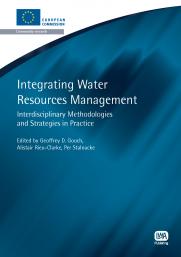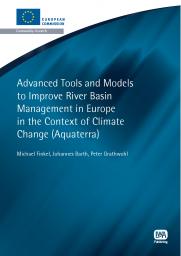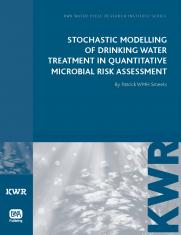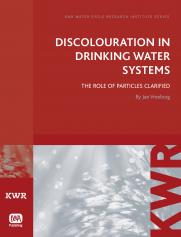 Quantification of Pathogens and Sources of Microbial Indicators for QMRA in Recreational Waters
Quantification of Pathogens and Sources of Microbial Indicators for QMRA in Recreational Waters
This study has increased knowledge about relationships between pathogen indicators, source identifiers and pathogens to support Quantitative Microbial Risk Assessment (QMRA) efforts and the...
 Comparative Evaluation of Molecular and Culture Methods for Fecal Indicator Bacteria for Use in Inland Recreational Waters
Comparative Evaluation of Molecular and Culture Methods for Fecal Indicator Bacteria for Use in Inland Recreational Waters
Rapid analytical methods are likely to be incorporated into revised recreational water quality criteria by the US EPA (2012). While epidemiological studies have demonstrated a correlation of...
 Linking Receiving Water Impacts to Sources and to Water Quality Management Decisions: Using Nutrients As An Initial Case Study
Linking Receiving Water Impacts to Sources and to Water Quality Management Decisions: Using Nutrients As An Initial Case Study
Concern over water quality impacts from an ever increasing array of potential contaminants has become a major challenge for water resource managers. To better understand the linkages between...
 Membrane Based Desalination: An Integrated Approach
Membrane Based Desalination: An Integrated Approach
Reverse Osmosis is the dominant technology in water desalination. However, some critical issues remain open: improvement of water quality, enhancement of the recovery factor, reduction of the unit...
 Membrane Technology in Water Treatment in the Mediterranean Region
Membrane Technology in Water Treatment in the Mediterranean Region
The complex dimensions of the Mediterranean freshwater resources, their fragility and their scarcity have been highlighted and have received considerable attention as a primary priority issue...
 Integrating Water Resources Management
Integrating Water Resources Management
The strategy and methodology for improved IWRM project, (STRIVER) has developed interdisciplinary methods to assess and implement IWRM. Based on the development of a multidisciplinary knowledge...
 Advanced Tools and Models to Improve River Basin Management in Europe in the Context of Climate Change
Advanced Tools and Models to Improve River Basin Management in Europe in the Context of Climate Change
Advanced Tools and Models to Improve River Basin Management in Europe in the Context of Climate Change - AquaTerra has developed from an integrated project of the 6th EU...


